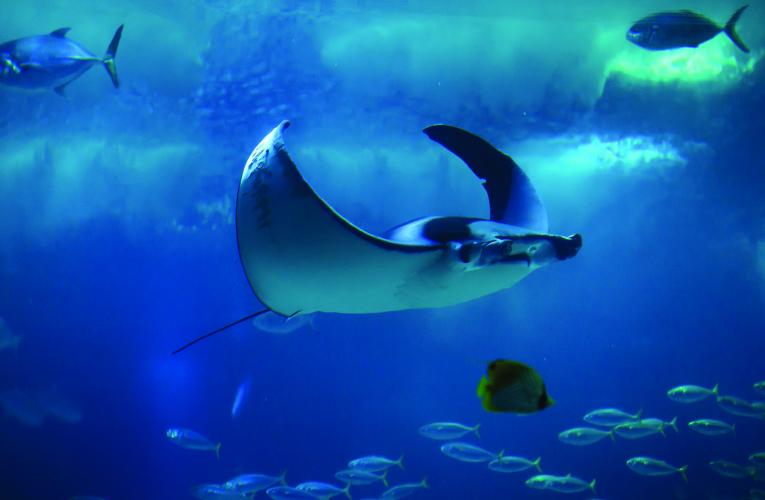The discovery of dozens of pregnant giant devil rays entangled in fishing nets along Mexico’s Gulf of California could mean the endangered species has a previously unknown birthing zone in nearby waters.
That’s the conclusion of a study led by Leo Chan Gaskins, a doctoral student in marine science and conservation at the Duke University Marine Lab.
“These animals reach sexual maturity very slowly and they have only one pup per litter, so losing even a small number of pregnant females to by-catch can have dire effects on a local population’s birth potential and long-term survival,” Gaskins said.
“We still know very little about their global population size, annual movement patterns and reproductive zones, so the discovery and protection of a previously unknown pupping ground would be good news for conservation,” Gaskins said.
He published his peer-reviewed paper in the journal Ecology.
Giant devil rays (Mobula mobular) can grow to 17 feet long and are known for their acrobatic leaps and deep dives. Large numbers are accidentally killed each year when they become snared in fishing nets while foraging in shallow waters.
Gaskins observed the netted rays while taking a field course on community-based marine conservation in the Gulf of California as a Duke undergraduate in April 2014.
Measurements of the wing spans of two of the dead adult females and one of the dead pups confirmed Gaskins’ belief that the pups were full term.
“These measurements, along with the fact that each boat landed multiple pregnant rays, suggested that the fishers had unknowingly set their nets in a pupping zone,” he said.
Past studies have shown that giant devil rays use the Gulf of California as a mating and feeding zone in spring and early summer, but the presence of a birthing zone there was unknown.
Knowing the locations and timing of the rays’ movements in the gulf as they head to and from the pupping grounds would help local fishers, fishery managers and conservation groups reduce the risk of by-catch, he said.
Gaskins’ research was funded by a National Science Foundation Graduate Research Fellowship.

